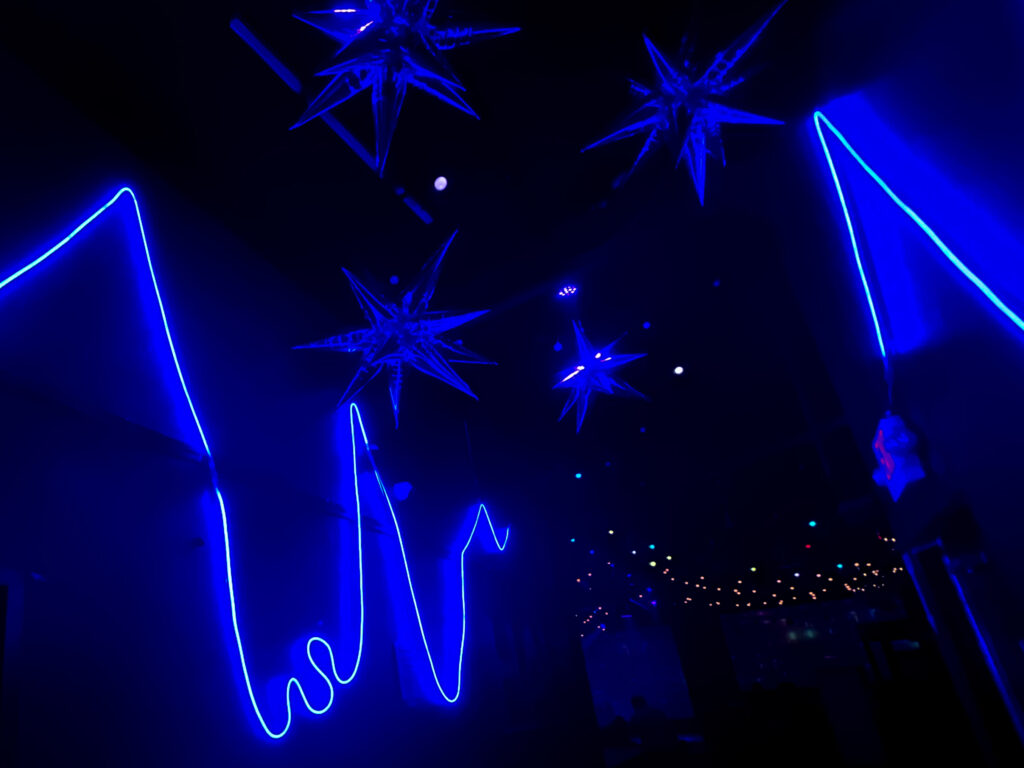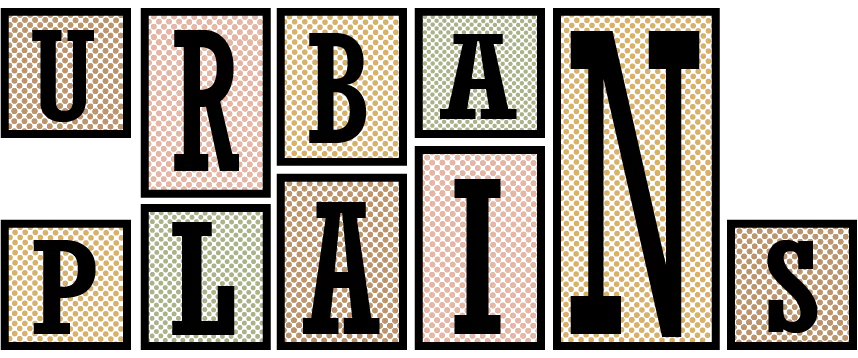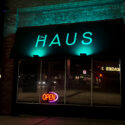Longtime friends Matt Carter and Casey Delong met about 25 years ago at The Q — the only gay dance club in Lincoln, Nebraska. The bar quickly became their ‘spot.’ It also provided them with a second family, just like gay bars have done for the LGBTQ+ community for decades.
“We knew everybody,” Carter said. “We knew the owners. We knew the bartenders. We knew the staff. We knew the people operating Pride. That camaraderie and that group — family was there.”
The Q was home to many regular patrons for years, serving as an epicenter for the gay community of Nebraska’s capital. It was a gathering place. It was a safe haven.
And then, it was gone.
In 2015, the building housing the bar burned down, leaving a void that Lincoln still feels eight years later.
The Dynamic Duo
At its peak, Lincoln was home to two prominent gay bars: The Q and Panic Bar. Perched on the edge of the vast Nebraska prairie, these were the only clubs a young LGBTQ+ person could feel comfortable in between Denver and Omaha. The clubs provided the Lincoln queer community with a consistent place of belonging for decades. It didn’t last.
While The Q’s ending was tragic, Panic Bar’s was much more common. Founded in 1982, Panic Bar was one of the first gay bars in Lincoln. It was a beacon for the LGBTQ+ community for 38 years. Like so many other gay bars, though, Panic Bar was hit hard by the pandemic. With everyone staying in and no one going out, it was forced to close its doors in 2020.
The Q wasn’t around as long. It opened in April 1995, but in 2013, closed abruptly and reopened a few months later under a new name: Karma Nightclub & Cabaret. When it burned down in 2015, Panic Bar was on its own. That changed in 2018. Das Haus, a new gay bar, opened up in downtown Lincoln, just a few blocks off the University of Nebraska-Lincoln campus. When Panic Bar closed in 2020, Das Haus was the last gay bar left standing.
The History of Stonewall
Historically, gay bars have always served a vital role for people in the queer community. In the 1960s, engaging in any “gay behavior” in public was illegal, so gay bars served as a refuge for LGBTQ+ Americans to gather with peers, express themselves freely and find community when they couldn’t be out in public.
Unfortunately, these bars became a target for that very reason. Gatherings of LGBTQ+ people were considered ‘disorderly’ and were often raided by police. Eventually, this invasion of queer spaces reached a breaking point. In June 1969, the Stonewall Riots at The Stonewall Inn in New York City tragically became the catalyst for change in the gay rights movement. When police raided the bar and began making dozens of arrests, patrons and employees fought back. It got so bad that the first of four nights, police barricaded themselves in the inn while rioters used a parking meter as a battering ram to break down the door. More cops eventually came, and the crowd dispersed. A year later, the first gay pride parade started at The Stonewall Inn to mark the anniversary of the uprising.
The Void
In Lincoln, The Q and Panic Bar served the same purpose as Stonewall — to provide a safe space for the LGBTQ+ community to gather. But The Q did a lot more than serve drinks. They had vendors come in to throw drag shows, sell kink toys and hold other events. Delong has yet to see events like these happen again in Lincoln.
For both Carter and Delong, the loss of these bars has left a void in the Lincoln queer community.
“We lost something big when we lost The Q,” Delong said. “It wasn’t just a bar burning down, you know — it was so much more than that. So many memories.”
Panic Bar couldn’t fill the void. It tried, but it wasn’t a large enough venue to hold the whole community. Plus, it catered to a different crowd. The Q was a nightclub full of dancing. Panic Bar was more of a “nice, casual, chill bar,” according to Delong.
And yet, Panic remained a safe space, even if it wasn’t the dance club they wanted. Babygirl T. Uchawi, a Lincoln drag queen, often went to Panic before it closed. Panic was the place she would go when she didn’t want to be around the “club” environment and just wanted a mellow night out during the week with friends.
“It truly was an amazing atmosphere that is deeply missed,” Uchawi said. “Without Panic, there really was nowhere to go on the weekdays.”
Hidden on O Street
Das Haus opened its doors in 2018. It’s located on O Street, a known hotspot for bars, restaurants and shops in Lincoln. This 59-mile road divides the city on any Lincoln map and is one of the longest Main Streets in the world. O Street brings commuters, shoppers, tourists and residents to the center of Lincoln’s commercial district. In the middle of it all, tucked in one of those historic buildings, lies the lone gay bar left in Lincoln.
But Das Haus doesn’t show a lot of pride on the outside. It doesn’t look like a gay bar at first glance. There are no signs, no pride flags, no indicator at all that there’s a gay bar there.
“This bar does not scream, ‘I’m a gay bar right here,’” Delong said. “Perhaps somebody was like, ‘I wonder if Lincoln has a gay bar?’ What a perfect opportunity to show that right on O Street, the most popular street in the city, but there’s nothing out there.”

Home is Where the Gays Are
In Lincoln, there are mixed feelings regarding Das Haus. Delong doesn’t feel like the size and connection of the community quite live up to what they had at The Q and Panic.
“Everybody went to The Q, young and old, and we need another place like that desperately,” Delong said.
But not everyone feels the same. Uchawi and Kyleesha Starr, a fellow drag queen, have been performing at Das Haus for five and two years, respectively. For Uchawi, Das Haus means a lot because it was the first bar she was able to call home as a performer. It’s where she built her drag career.
Starr describes the community at Das Haus as another family where everyone supports each other. And Uchawi is thankful they have a space like Das Haus, because nothing else quite replicates coming together as a community, especially after being separated during the pandemic.
“It’s one of the few places we can go to celebrate one another without question,” Uchawi said.
Additionally, Uchawi strives to create more weekday activities for the LGBTQ community at Das Haus that aren’t focused on drinking, like Trivia Tuesday and Karaoke Wednesday. On Mondays, she hosts Drag Bingo at DB Coopers, another bar in Lincoln.
“We have to remember that bars do not have to be our only options for queer spaces,” Uchawi said.
Other Lincoln restaurants and bars such as Illusions, JJ Hooligans, Gravity and Mana Games also host drag brunches, dinners and other events. Mana Games, a gaming cafe, is a sober space, which Uchawi is glad to have for people who don’t drink.
But when it comes down to it, these drag queens both love performing on the Das Haus stage.
“When you step into the showroom, you forget you’re in the middle of Nebraska,” Uchawi said. “The audience is always so engaging and you truly feel like a star.”

Continuing the Fight
How long that stage will exist is up for debate. Across the country, drag performances have become political fodder, a part of a larger effort to limit LGBTQ rights.
According to the ACLU, 451 bills targeting LGBTQ Americans have been proposed across 36 states. In Nebraska, four bills have been introduced, including bans on transgender care for anyone under 19 and making it a crime to bring a minor to a drag show. All have advanced at the state capitol, which sits just five blocks from Das Haus.
That kind of concerted attack on LGBTQ rights has made queer spaces even more important. They’ve become a gathering point and a rallying cry.
“If we didn’t have gay bars, we wouldn’t have a political stance. That’s just the bottom line,” Carter said. “That’s coming from the ‘50s, ‘60s, ‘70s, ‘80s, and moving forward into our later years.”
For Uchawi, it’s important now more than ever to make that political stance to protect and engage queer spaces.
“If you’ve ever been to a drag show for a bachelorette party or a girl’s night out, make sure you are not taking our spaces for granted because they’ll be gone before you know it,” Uchawi said. “Get out and help us fight these awful bills being proposed. A dollar bill every weekend isn’t enough.”


One thought on “The Last Gay Bar in Lincoln”